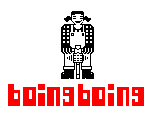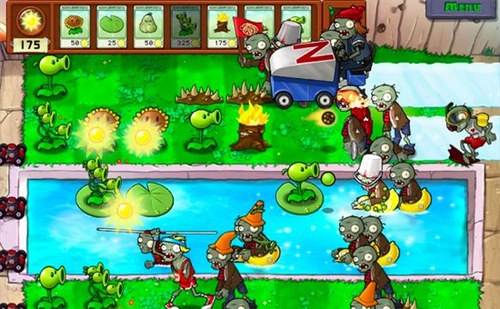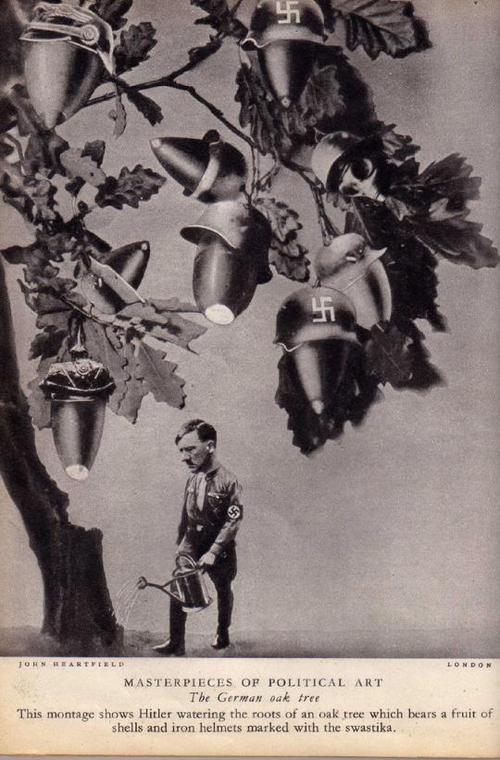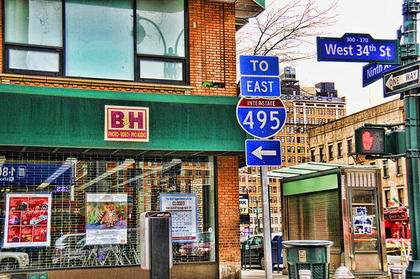The Latest from Boing Boing |  |
| Posted: 10 May 2009 09:48 PM PDT  Recently on Offworld Tom Armitage donned Plants Vs. Zombies (above) his official game for the weekend, admitting that its "charming character design and inventive array of zombies ensures that it's never long after a play-session before you're double-clicking on it again," and I take a longer look at my first week with my own most-played tower defense game -- ngmoco and Rough Cookie's spherical iPhone Star Defense -- and how everything I was skeptical of might became the very reasons it'll win me over. I also gave my first-hand diary account of sneaking across the digital Canadian border to be part of Microsoft's unveiling of its massively-multiplayer Xbox 360 version of the game show 1 Vs. 100, which will be played for real prizes (in the form of Microsoft Points) and looks geared to be the first successful run of a truly interactive TV show (commercial breaks and all). Elsewhere we took a quicker look at games due out in the coming months: Konami's revival of its long-running Contra series for WiiWare, a Mr. Driller team reunion with Sony's PS3/PSP number-puzzler Qruton, and Sonic the Hedgehog creator Yuji Naka's latest rhythm game for Wii, which asks that you not even hold the controller at all. And we saw the first look at a comic-book-style SimCity game Maxis never made, the first details of BioShock 2's multiplayer campaign, listened to a live glitch-out chiptune performance and chiptunes done instead on ukuleles, and, for the daily 'one shot's: a space invader weathering a placid Paris winter, a rusted ironworks decayed arcade, and the first look at UK comics legend 2000 AD and Judge Dredd's new home on the LittleBigPlanet. Recently on Offworld Tom Armitage donned Plants Vs. Zombies (above) his official game for the weekend, admitting that its "charming character design and inventive array of zombies ensures that it's never long after a play-session before you're double-clicking on it again," and I take a longer look at my first week with my own most-played tower defense game -- ngmoco and Rough Cookie's spherical iPhone Star Defense -- and how everything I was skeptical of might became the very reasons it'll win me over. I also gave my first-hand diary account of sneaking across the digital Canadian border to be part of Microsoft's unveiling of its massively-multiplayer Xbox 360 version of the game show 1 Vs. 100, which will be played for real prizes (in the form of Microsoft Points) and looks geared to be the first successful run of a truly interactive TV show (commercial breaks and all). Elsewhere we took a quicker look at games due out in the coming months: Konami's revival of its long-running Contra series for WiiWare, a Mr. Driller team reunion with Sony's PS3/PSP number-puzzler Qruton, and Sonic the Hedgehog creator Yuji Naka's latest rhythm game for Wii, which asks that you not even hold the controller at all. And we saw the first look at a comic-book-style SimCity game Maxis never made, the first details of BioShock 2's multiplayer campaign, listened to a live glitch-out chiptune performance and chiptunes done instead on ukuleles, and, for the daily 'one shot's: a space invader weathering a placid Paris winter, a rusted ironworks decayed arcade, and the first look at UK comics legend 2000 AD and Judge Dredd's new home on the LittleBigPlanet. |
| Joel Spolsky on the perfect electronics store Posted: 11 May 2009 04:14 AM PDT Writing in Inc. about what a crummy story Circuit City was before it died, Joel "On Software" Spolsky describes what may just be the perfect electronics store, B&H at Ninth and 34th in NYC. Why Circuit City Failed, and Why B&H Thrives (via Consumerist) (Image: B & H=Headquarters, a Creative Commons Attribution photo from The Talented Mr. Nimo's Flickr stream) |
| Antifascist collages that made Hitler crazy Posted: 10 May 2009 04:47 PM PDT  RJ sez, "Very few people have heard of John Heartfield, the German born artist whose photomontages in the late nineteen thirties outraged Adolf Hitler. However, as part of the resistance against the inexorable rise of Nazism, he contributed some of the most biting satirical photographic mashups of the day - and all without the aid of Photoshop. Nice." The Extraordinary Anti-Nazi Photomontages of John Heartfield |
| Martians Learn about the Free Market from the Oil Industry Posted: 10 May 2009 06:01 AM PDT
Douglas Rushkoff - author of the book Life Inc: How the world became a corporation and how to take it back - is a guest blogger. In spite of its unfaltering market bias (or maybe because of it) the film is still quite an entertainingly assembled piece of work. |
| You are subscribed to email updates from Boing Boing To stop receiving these emails, you may unsubscribe now. | Email delivery powered by Google |
| Inbox too full? | |
| If you prefer to unsubscribe via postal mail, write to: Boing Boing, c/o Google, 20 W Kinzie, Chicago IL USA 60610 | |




No comments:
Post a Comment